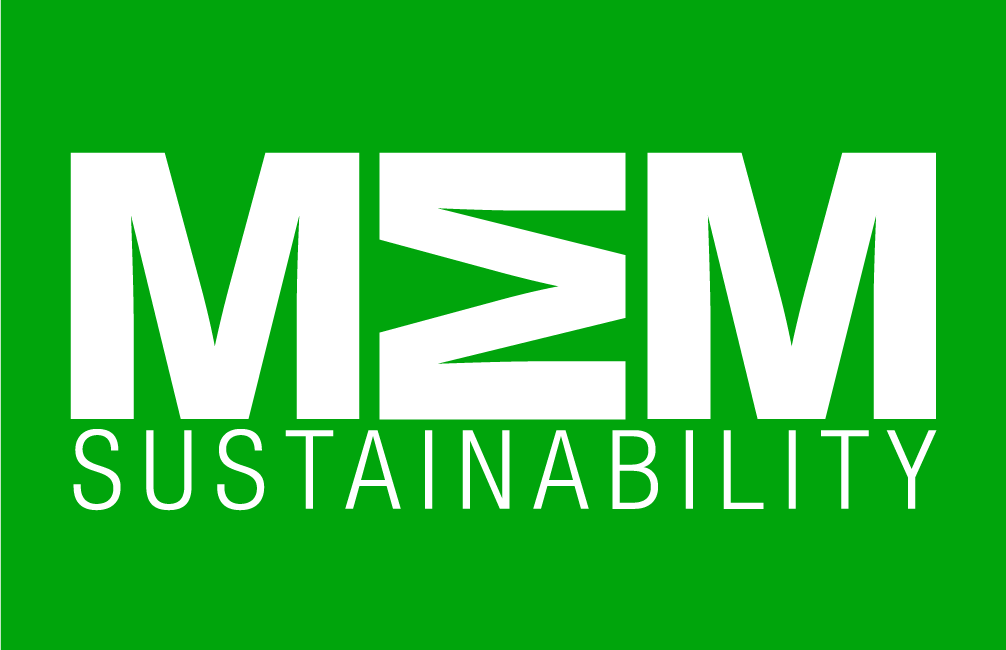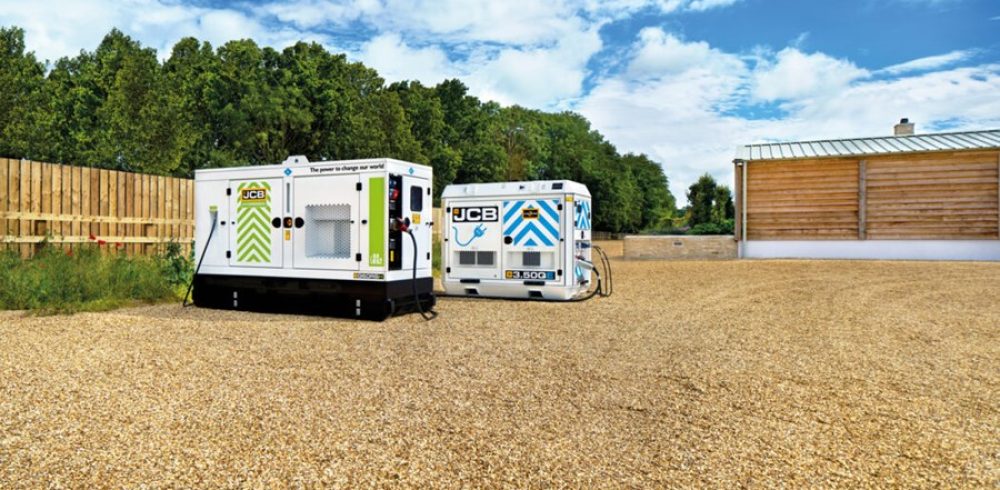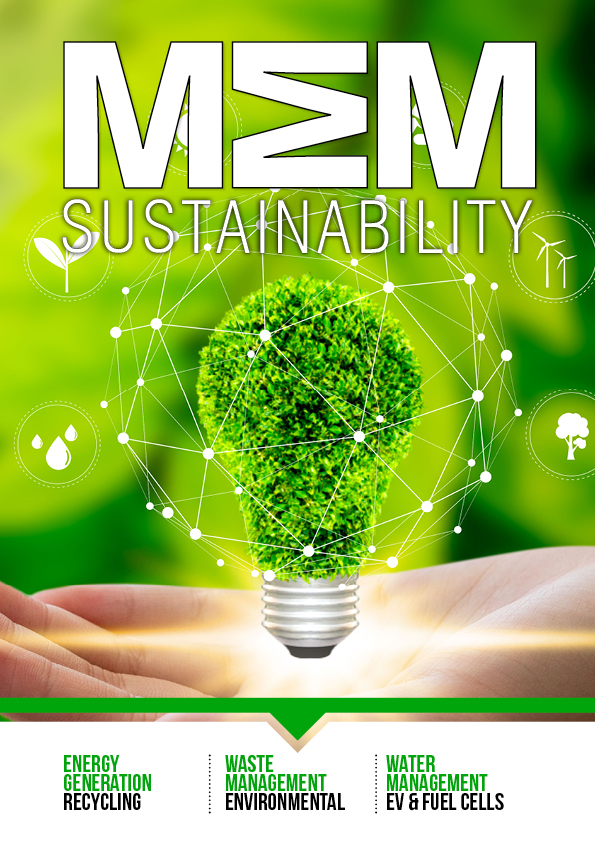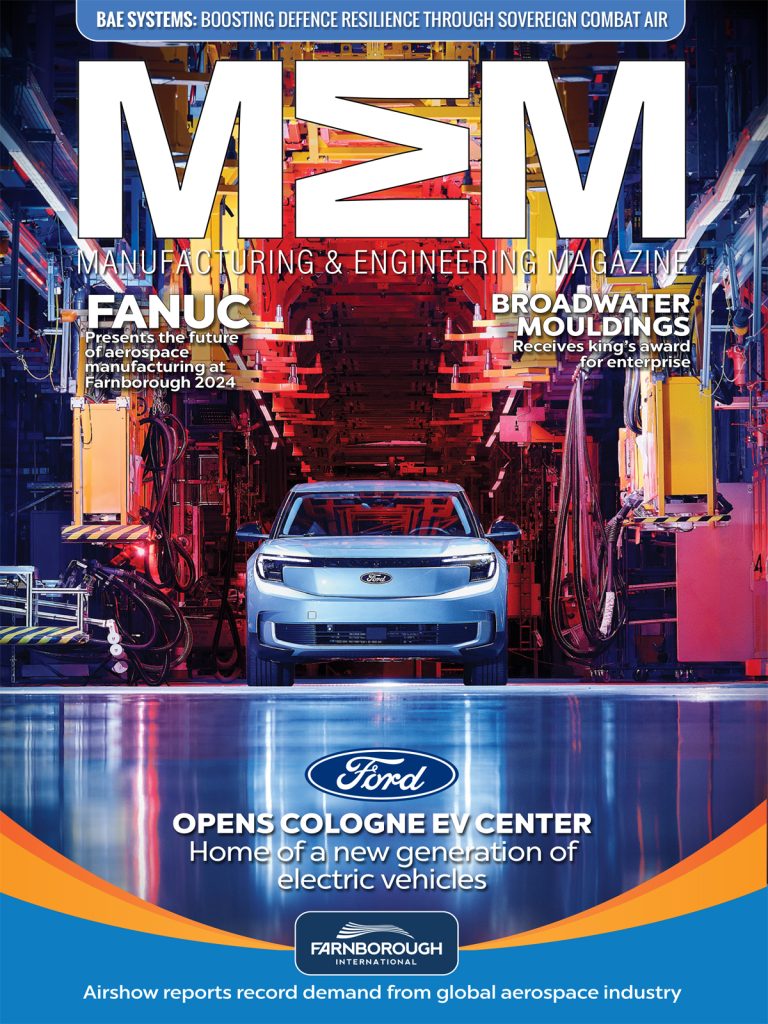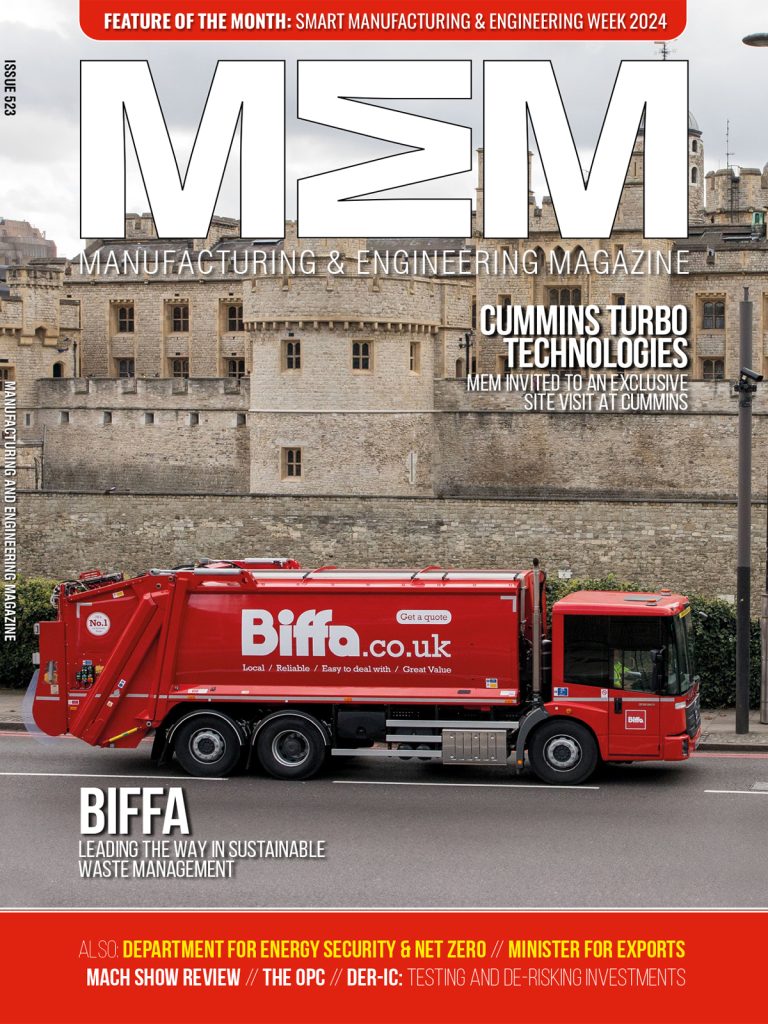JCB takes another major step forward in the process of evaluating hydrogen as a fuel of the future with the first showing of a generator powered by the net zero fuel.
The company is investing more than £100 million in pioneering hydrogen as a fuel solution for construction and agricultural machines and has already produced 115 evaluation engines which are powering backhoe loaders and Loadall telescopic handlers.
Today a new concept is unveiled at the Hillhead Show – a generator powered by a JCB hydrogen combustion engine. The G60RS H genset offers a glimpse into the future of zero carbon worksites and highlights how the JCB hydrogen generator delivers the same power, performance, and efficiency as its diesel equivalent – but without the carbon.
JCB will showcase how a hydrogen generator works in tandem with JCB’s three-phase Powerpack to create on-site ‘ microgrids ’ – utilising both battery-electric and hydrogen combustion technology. With energy supplied to the Powerpack from renewable sources, the generator, powered by hydrogen, effectively becomes a battery charger, only running for short periods when the battery needs topping up, or at peak load points. This reduces fuel consumption and offers long periods of silent or quiet hours operation.
Hydrogen generators coupled with battery boxes really are the future, paving the way for the formation of on-site microgrids . Construction sites today rely on diesel power because there are insufficient or inaccessible grid connections, but because diesel is incompatible with net zero targets, customers are rightly seeking alternatives.
Tim Burnhope | JCB’s Group Director of Special Projects
“A hydrogen generator offers that alternative, providing clean power on-site. It delivers zero carbon power to the worksite for anything from welfare units to lighting towers. It also works in the same way as its diesel counterpart, ensuring familiar operation, installation, maintenance, and servicing.”
Paving the way for the net-zero worksite of the future.
Since building our first agricultural tipping trailers back in 1945, we’ve always been looking for a better way. This commitment to innovation has fuelled our journey on the road to zero. And now, we’ve taken another huge step forward with the hydrogen generator.
The G60RS H is powered by the pioneering JCB hydrogen combustion engine. Working in conjunction with the JCB Powerpack, it’s a hydrogen powered generator designed to reduce carbon footprint without sacrificing performance.
Clean power with maximum efficiency. Discover why this hydrogen generator concept represents the future of work site power.
Making ‘ Microgrids ‘ Powered by Hydrogen & Electric
Our hydrogen powered generator works hand-in-hand with the JCB 3-Phase Powerpack to create an on site ‘microgrid’. This turns the Powerpack into the clean power hub on site, while the genset acts as a battery charger – running for short periods, at high efficiency, when the battery needs topping up, or the site needs more power.
As a result, there are two key benefits: a reduction in overall fuel consumption and long periods of silent or quiet operation. This means sites can run for longer, for less fuel costs – introducing new levels of fuel and operational efficiency.
Plus, additional smart management features include timed socket controls and simple integration of on site renewables like solar panels – allowing you to produce and store clean power on site.
It’s everything you’d expect from a diesel-powered generator – the same power and performance, as well as the operation, installation, maintenance and servicing you’re used to. But there’s one all-important difference with a hydrogen generator: it’s powered by a zero carbon fuel, hydrogen.
“Hydrogen generators coupled with battery boxes really are the future, paving the way for the formation of on site microgrids “
Tim Burnhope, JCB Group Director of Special Projects
Manufacturing & Engineering Magazine | The Home of Manufacturing Industry News


